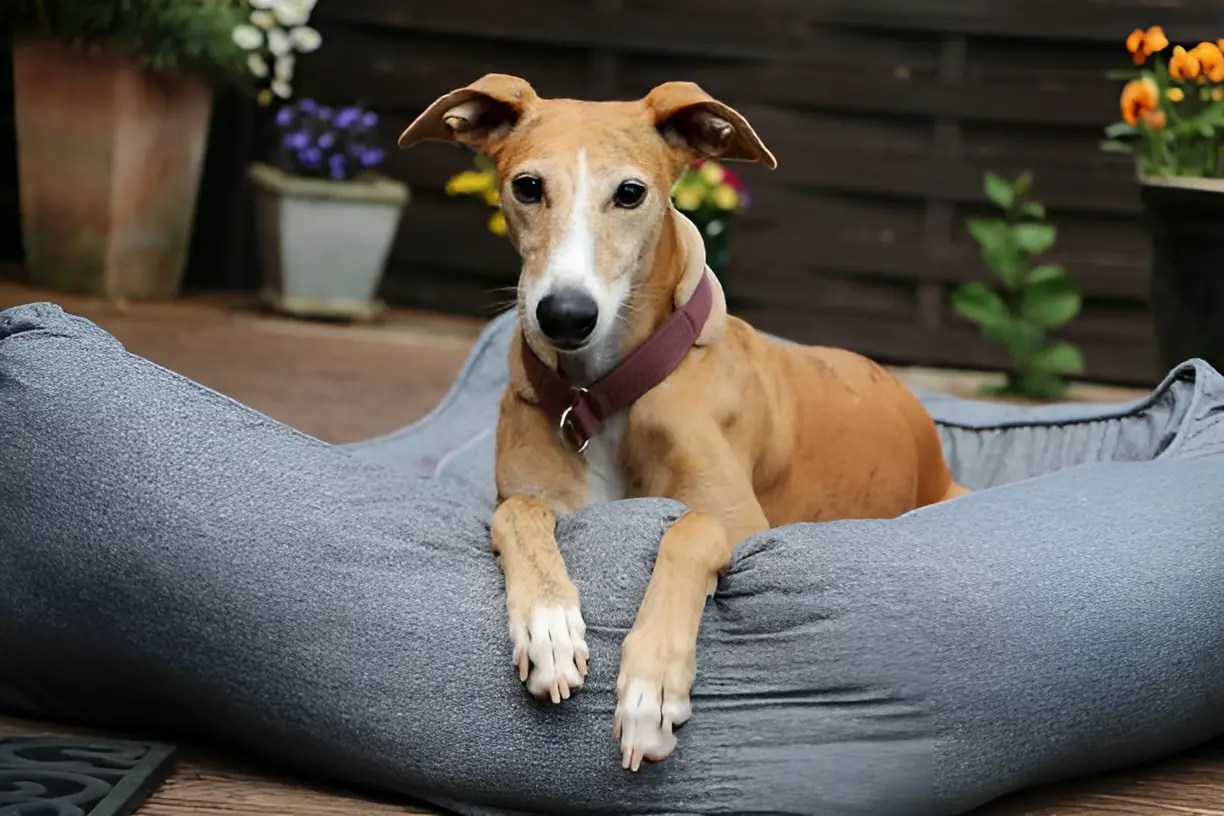Yes, retired greyhounds make excellent pets. This article will explore why these gentle, affectionate dogs are a great addition to any household, covering their temperament, care needs, and the benefits of adopting a retired racer.
Retired greyhounds are often overlooked in the world of pet adoption, but they have a lot to offer. Known for their gentle nature and low-maintenance lifestyle, these dogs can be a perfect fit for many families. This article will delve into the reasons why retired greyhounds make such wonderful pets, providing a comprehensive guide for potential adopters.
The Gentle Nature of Greyhounds
Greyhounds are known for their calm and gentle demeanor. Despite their history as racing dogs, they are surprisingly laid-back and enjoy lounging around the house. This makes them ideal for families looking for a relaxed and affectionate pet.
Temperament
- Affectionate: Greyhounds are known for their loving nature. They enjoy being close to their human companions and are often described as “45 mph couch potatoes.”
- Gentle: These dogs are typically very gentle and patient, making them great companions for children and the elderly.
- Quiet: Greyhounds are generally quiet dogs that rarely bark, which can be a significant advantage for those living in apartments or close quarters.
Health and Care Needs
While greyhounds are relatively low-maintenance, they do have specific health and care needs that potential owners should be aware of.
Health Considerations
- Sensitive Skin: Greyhounds have thin skin and little body fat, making them prone to cuts and scrapes. It’s essential to provide them with soft bedding and be mindful of rough play.
- Dental Health: Like many breeds, greyhounds can be prone to dental issues. Regular teeth brushing and dental check-ups are crucial.
- Temperature Sensitivity: Due to their low body fat, greyhounds can be sensitive to extreme temperatures. They may need a coat in cold weather and should not be left outside for extended periods in the heat.
Exercise Requirements
Despite their racing background, greyhounds do not require excessive exercise. A couple of short walks and some playtime each day are usually sufficient to keep them happy and healthy.
The Benefits of Adopting a Retired Greyhound
Adopting a retired greyhound comes with numerous benefits, both for the dog and the owner.
Ready for a New Life
- Well-Behaved: Many retired greyhounds come from racing backgrounds where they have been trained and socialized. This means they are often well-behaved and accustomed to being around people and other dogs.
- Grateful Companions: Retired greyhounds often show immense gratitude and affection towards their new owners, forming strong bonds quickly.
Supporting a Good Cause
- Rescue and Rehabilitation: By adopting a retired greyhound, you are giving a second chance to a dog that may have otherwise faced an uncertain future. Many retired racers are in need of loving homes after their racing careers end.
- Promoting Adoption: Adopting a retired greyhound helps raise awareness about the breed and the importance of adopting rather than shopping for pets.
Training and Socialization
Training and socialization are crucial for any dog, and retired greyhounds are no exception. However, their gentle nature often makes them easier to train than some other breeds.
Basic Training Tips
- Positive Reinforcement: Greyhounds respond well to positive reinforcement techniques, such as treats and praise.
- Consistency: Consistency is key when training any dog. Establishing a routine can help greyhounds adjust to their new home more quickly.
- Patience: Some greyhounds may take a little time to adjust to life outside of the racing environment. Patience and gentle guidance are essential during this transition period.
Common Misconceptions About Greyhounds
There are several misconceptions about greyhounds that can deter potential adopters. It’s important to dispel these myths to better understand the breed.
Myth: Greyhounds Need a Lot of Exercise
While greyhounds are known for their speed, they do not require extensive exercise. They are sprinters, not endurance runners, and are content with a few short walks and some playtime each day.
Myth: Greyhounds Are Aggressive
Greyhounds are generally very gentle and non-aggressive. They are known for their calm and friendly demeanor, making them great companions for families and individuals alike.
Conclusion
Retired greyhounds make excellent pets for a variety of reasons. Their gentle nature, low-maintenance lifestyle, and the joy they bring to their new families make them a wonderful addition to any household. By adopting a retired greyhound, you are not only gaining a loyal companion but also supporting a good cause.
The photo featured below the post headline is Credit: BiancaGrueneberg/istockphoto
I hope you find this post helpful and informative. If Yes’ feel free to share it with your friends!
Frequently Asked Questions
Are retired greyhounds good with children?
Yes, retired greyhounds are generally very gentle and patient, making them great companions for children.
Do retired greyhounds need a lot of exercise?
No, greyhounds are sprinters and do not require extensive exercise. A couple of short walks and some playtime each day are usually sufficient.
Are greyhounds good apartment dogs?
Yes, greyhounds are quiet and low-energy indoors, making them well-suited for apartment living.
How do I care for a retired greyhound’s sensitive skin?
Provide soft bedding, avoid rough play, and be mindful of their thin skin to prevent cuts and scrapes.
Why should I adopt a retired greyhound?
Adopting a retired greyhound gives a second chance to a dog in need, supports rescue efforts, and provides you with a loving and loyal companion.

